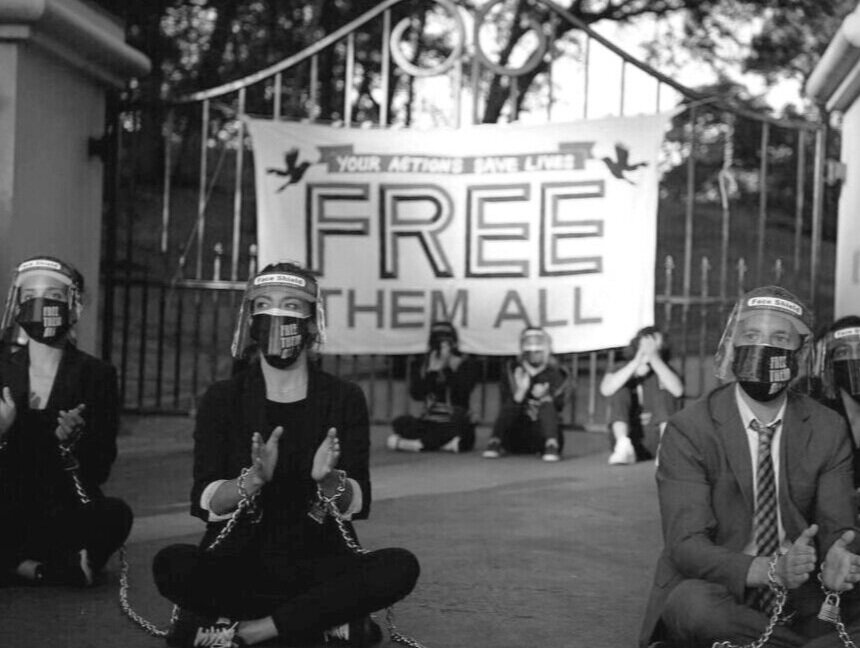
CALIFORNIA
From the Streets to the Capital:
Winning a De-Criminalization Agenda in the State Legislature
With 1 out of 4 state residents born outside the United States and 1 out of 2 children living with a head of household born outside of the United States, California is the most immigrant rich state in the country.
From the home of the Black Panthers to the birthplace of the United Farm Workers, California has often been the country’s pacesetter for organizing and activism. Local organizing in cities and counties across the state proceeds at a breakneck speed, but one of the things that makes California unique is that local organizers have increasingly succeeded at flexing their power at the state legislative level. Organizers have led efforts advancing a decriminalization agenda at the state level passing over two dozen laws specifically at the intersection of criminal and immigrant justice.
The California story is a glimpse into the future—providing a roadmap for what can happen when organizers gain the power, access, and momentum to pass state laws.
OUR LAWS TOUCHED ON THE ISSUES OF…
Effective record clearance for citizens and noncitizens.
Criminal convictions create many lasting and immutable consequences—including barriers to employment, housing, and, for noncitizens, barriers to even remaining in the country. As cries for “second chances” and “clean slates” grow louder, California advocates have worked to ensure that these efforts include meaningful remedies for citizens and noncitizens. We have drafted first of its kind legislation that helps both citizens and noncitizens clean their records, avoid deportation, and regain opportunities for successful reentry.
1473.7
Pardon reform coalition
DA sentence recall work
Advancing alternatives to incarceration.
Advocating for diversion programs that are good for citizens and noncitizens, as well as clean up laws, expansion laws, and the end of youth incarceration.
Prosecutorial accountability.
In 2015, CA passed the first law in the country requiring prosecutors to avoid adverse immigration consequences when possible. This provided a critical tool for the community based tables increasingly demanding prosecutorial accountability, and helped launch community engagement efforts for prosecutorial town halls in critical DA races.
Investment/Divestment for a Budget to Save Lives.
The COVID-19 pandemic demands a bold, urgent public health response for incarcerated communities. Even before this health crisis, California’s jails, prison system, and immigration detention centers were dangerously overcrowded and medically negligent. The Dignity Not Detention Coalition, in partnership with CURB, JusticeLA, and Human Impact Partners, created A Budget to Save Lives, a community-based decarceration strategy which presents intersectional reforms in five key areas including: Jail population reduction, prison population reduction, immigration detention population reduction, youth decriminalization & decarceration, and community-based services & alternatives to incarceration. This statewide legislative budget strategy is designed to encourage California to divest from criminalization and incarceration and invest in cost and life-saving solutions for the health and wellbeing of our communities.
Video and stills by Lucas Solórzano, top photo by Brooke Anderson Photography.
ARTICLES
Desert Sun: Advocates call for Adelanto to fire city manager involved in detention center contracts
San Francisco Chronicle: California may ban private prisons. What would that mean for ICE detainees?
San Francisco Chronicle: San Mateo County comes under fire for transferring immigrants to ICE
The Appeal: California Legislature Adopts a Flurry of Criminal Justice Reforms
Cal Matters: Gov. Newsom can protect Californians by closing private prisons
San Francisco Examiner: California has a responsibility to ban private prisons
San Francisco Examiner: Giving immigrants a second chance after incarceration
Daily Beast: DA Backs Off Hardline Stance on Immigrants Caught With Weed
KCET: Health Over Punishment: Organizing Efforts to Stop ICE Transfers in California and Beyond
















